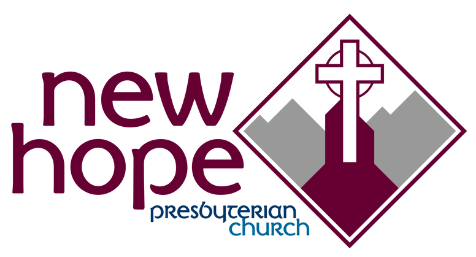Life Group Resources: The Wild Robot
Opening Prayer: Begin with a short prayer asking for God's guidance in your discussion and for open hearts to learn and grow together.
Key Takeaways:
We are created for care and relationship, not just task completion.
Love and relationships have the power to transform us.
The gospel calls us to "sacred becoming" rather than perfection.
Creation waits for us to become who God intended us to be.
Our journey of faith involves learning to love more deeply and become more fully human.
Discussion Questions:
The sermon mentions that we often come with "programming" from our upbringing and experiences. What aspects of your own "programming" have you become aware of in your life?
How do you balance efficiency and productivity with care and relationship in your daily life? Where do you struggle with this balance?
The sermon states, "Creation teaches her [Roz] how to be alive, how to care." Share an experience where nature or creation has taught you something about life or caring.
Reflect on the statement: "The gospel says to us that you are already loved, you are included, and from that foundation, you can become something beautiful." How does this perspective differ from messages we often hear in society?
The pastor mentions that love transforms "what the world says is incapable of change." Have you witnessed or experienced this kind of transformation in your life or someone else's?
How has technology impacted your ability to connect deeply with others? What are the benefits and drawbacks you've experienced?
The sermon suggests that the core of the gospel is about "becoming more human." What does this mean to you, and how might it change how you approach your faith?
Practical Applications:
This week, choose one task-oriented activity and approach it with a mindset of care and relationship instead. Reflect on how this changes your experience.
Spend time in nature, paying attention to what it might be teaching you about life, care, or your relationship with God.
Identify one area where you've been striving for perfection. Practice embracing the concept of "sacred becoming" instead, focusing on growth and transformation rather than flawlessness.
Make an effort to have a deep, meaningful conversation with someone this week, prioritizing presence and care over efficiency.
Reflect on how a relationship (with a person, pet, or even nature) has changed you. Write down specific ways you've grown or been transformed through this connection.
Closing Prayer: Close the session with a prayer of gratitude for the group's sharing and asking for God's help in becoming more fully human and loving in the coming week.
Key Takeaways:
We are created for care and relationship, not just task completion.
Love and relationships have the power to transform us.
The gospel calls us to "sacred becoming" rather than perfection.
Creation waits for us to become who God intended us to be.
Our journey of faith involves learning to love more deeply and become more fully human.
Discussion Questions:
The sermon mentions that we often come with "programming" from our upbringing and experiences. What aspects of your own "programming" have you become aware of in your life?
How do you balance efficiency and productivity with care and relationship in your daily life? Where do you struggle with this balance?
The sermon states, "Creation teaches her [Roz] how to be alive, how to care." Share an experience where nature or creation has taught you something about life or caring.
Reflect on the statement: "The gospel says to us that you are already loved, you are included, and from that foundation, you can become something beautiful." How does this perspective differ from messages we often hear in society?
The pastor mentions that love transforms "what the world says is incapable of change." Have you witnessed or experienced this kind of transformation in your life or someone else's?
How has technology impacted your ability to connect deeply with others? What are the benefits and drawbacks you've experienced?
The sermon suggests that the core of the gospel is about "becoming more human." What does this mean to you, and how might it change how you approach your faith?
Practical Applications:
This week, choose one task-oriented activity and approach it with a mindset of care and relationship instead. Reflect on how this changes your experience.
Spend time in nature, paying attention to what it might be teaching you about life, care, or your relationship with God.
Identify one area where you've been striving for perfection. Practice embracing the concept of "sacred becoming" instead, focusing on growth and transformation rather than flawlessness.
Make an effort to have a deep, meaningful conversation with someone this week, prioritizing presence and care over efficiency.
Reflect on how a relationship (with a person, pet, or even nature) has changed you. Write down specific ways you've grown or been transformed through this connection.
Closing Prayer: Close the session with a prayer of gratitude for the group's sharing and asking for God's help in becoming more fully human and loving in the coming week.
Recent
Life Group Resources: Jesus in the Wilderness
February 24th, 2026
Life Group Resources: For Thine Is...
February 15th, 2026
Life Group Resources: Lead Us Not Into Temptation
February 10th, 2026
Life Group Resources: Forgive...As We Forgive
February 1st, 2026
Life Group Resources: Our Daily Bread
January 25th, 2026
Archive
2026
January
2025
March
April
May
June
July
August
September
October
November

No Comments